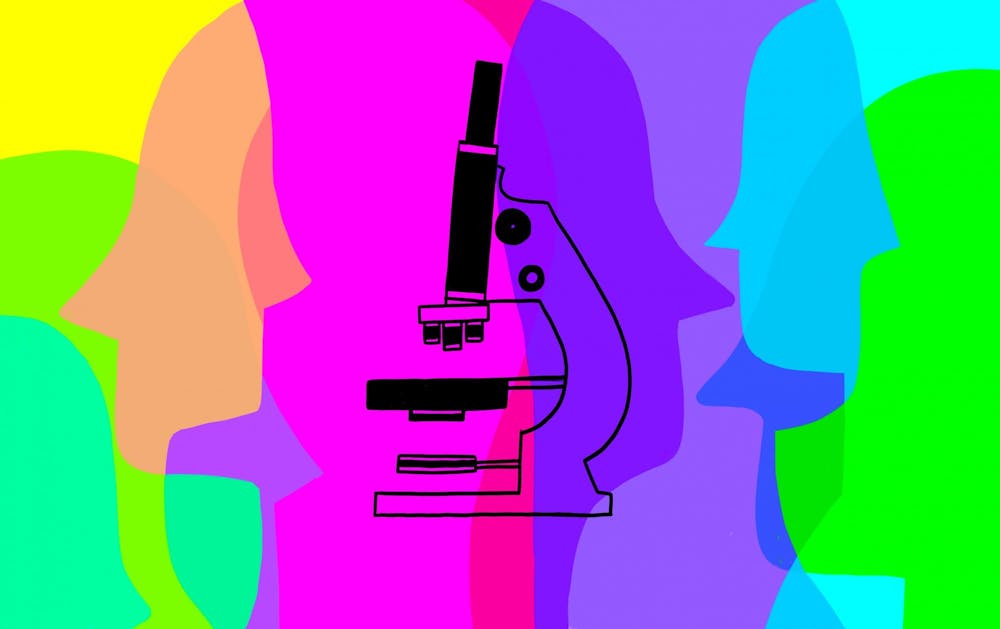In perhaps what seems like an oxymoron, the term "citizen science" has become a trend.
Those picturing scientists in lab coats and goggles might be surprised to learn that a lot of scientific data is collected through everyday observation from citizens.
ASU is leading the charge in a resurgence of citizen science programs with a program called Libraries as Community Hubs for Citizen Science. The partnership between the School for the Future of Innovation in Society, SciStarter and hundreds of public libraries nationwide began in 2017.
In December, the Libraries as Community Hubs for Citizen Science program won a President’s Medal for Social Embeddedness for their work on citizen science kits. The Applied Infectious Disease Epidemiology (AIDE) team within the School of Human Evolution and Social Change also won the President's Award for Innovation for their initiative to improve indoor air quality and ventilation.
AIDE partnered with the team from Libraries as Community Hubs for Citizen Science to create one of their newest citizen science kits, Accessing Indoor Air Quality.
According to the National Park Service, anyone can be a citizen scientist if they have "time, curiosity and a sense of wonder."
"Citizen science is a way of getting really difficult research projects done that are really observations of the world in many cases," said Jeanette Mueller-Alexander, a librarian at ASU.
Mueller-Alexander said that a citizen science experiment could be as simple as a hiker tracking a species of plant that could be harmful to the local environment and helping eradicate it.
According to Dan Stanton, head of the Humanities Division in the Engagement and Learning Services Department at the ASU Library, citizen science has been around since the days of "gentleman scientists" like Thomas Jefferson and Ben Franklin but disappeared once science became the property of universities.
Stanton helped facilitate the beginning of the University's citizen science project with ASU Library and helped utilize grants for the citizen science kits. Stanton also worked with Darlene Cavalier, founder of the citizen science portal SciStarter and a professor of practice at the School for the Future of Innovation in Society.
Members of the project met with communities in the Phoenix Metropolitan area to find out what their interests were and then focused on citizen science kits that seemed to have a good track record for producing results.
The project started with five separate kit templates and five different library districts: Apache Junction, Mesa, Scottsdale, Tempe, and two Maricopa County libraries – the Southeast Regional Library in Gilbert and the White Tank Library in Waddell.
As the program expanded, SciStarter connected libraries to citizen scientists nationally by hosting webinars with scientists involved. Citizen scientists were able to gain more insight into the different research projects associated with the kits.
Their kits focus on specific science research areas, such as light pollution, exploring biodiversity, “zombee” hunting for parasitic flies and monitoring indoor air quality.
Cavalier stressed the importance of indoor air monitoring kits, especially with the advent of COVID-19.
"If you're in a coffee shop, and the air isn't circulating and you're breathing in mostly CO2 or other people's air, that's when you have a problem," Cavalier said.
According to Cavalier, the directions to assemble the kits are provided to participating libraries and are customizable for seven different types of projects that can be checked out for community use.
"Librarians can pick and choose what kit topic and project aligns with the concerns, or curiosities, or interests of their community," Cavalier said. "They actually create the kits and circulate them."
Cavalier credits the quick expansion of the project to the participation of the librarians in creating and maintaining the kits with help from current funding from the National Library of Medicine, the Institute for Museum and Library Services and the Gordon and Betty Moore Foundation.
"Everybody likes to be helpful and part of something bigger," Mueller-Alexander said.
One concern of citizen science participation is whether one can deliver proper scientific protocol, but that concern is unfounded, Stanton said.
Stanton said that if the projects are designed properly and citizen scientists follow all protocols, there shouldn't be any concern. Citizen scientists are beneficial in helping scientists conduct research to cover a larger range of both location and data than they could alone.
"There are citizen scientists who have logged some really serious lab time because they love what they’re doing," Stanton said.
Edited by Andrea Ramirez, Jasmine Kabiri and Caera Learmonth.
Reach the reporter at kbartune@asu.edu and follow @BartunekKaren on Twitter.
Like The State Press on Facebook and follow @statepress on Twitter.




